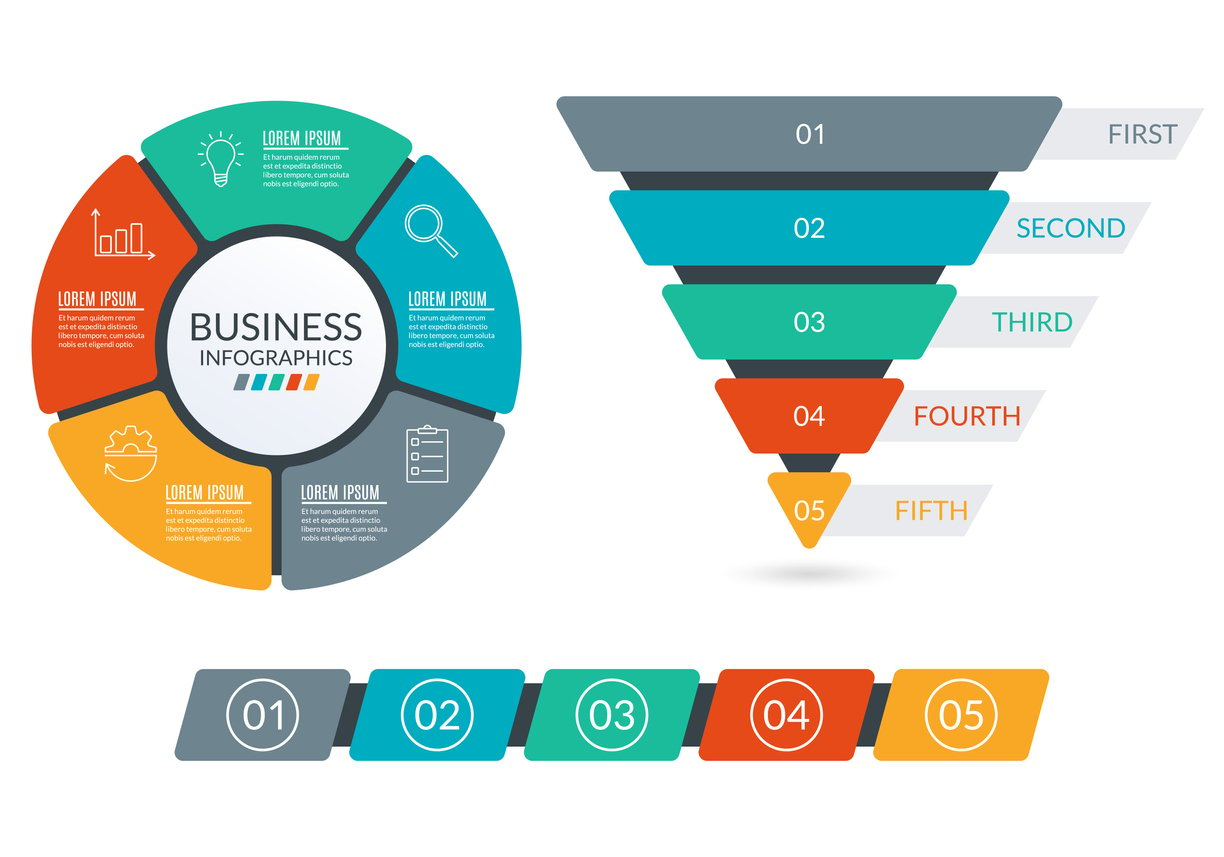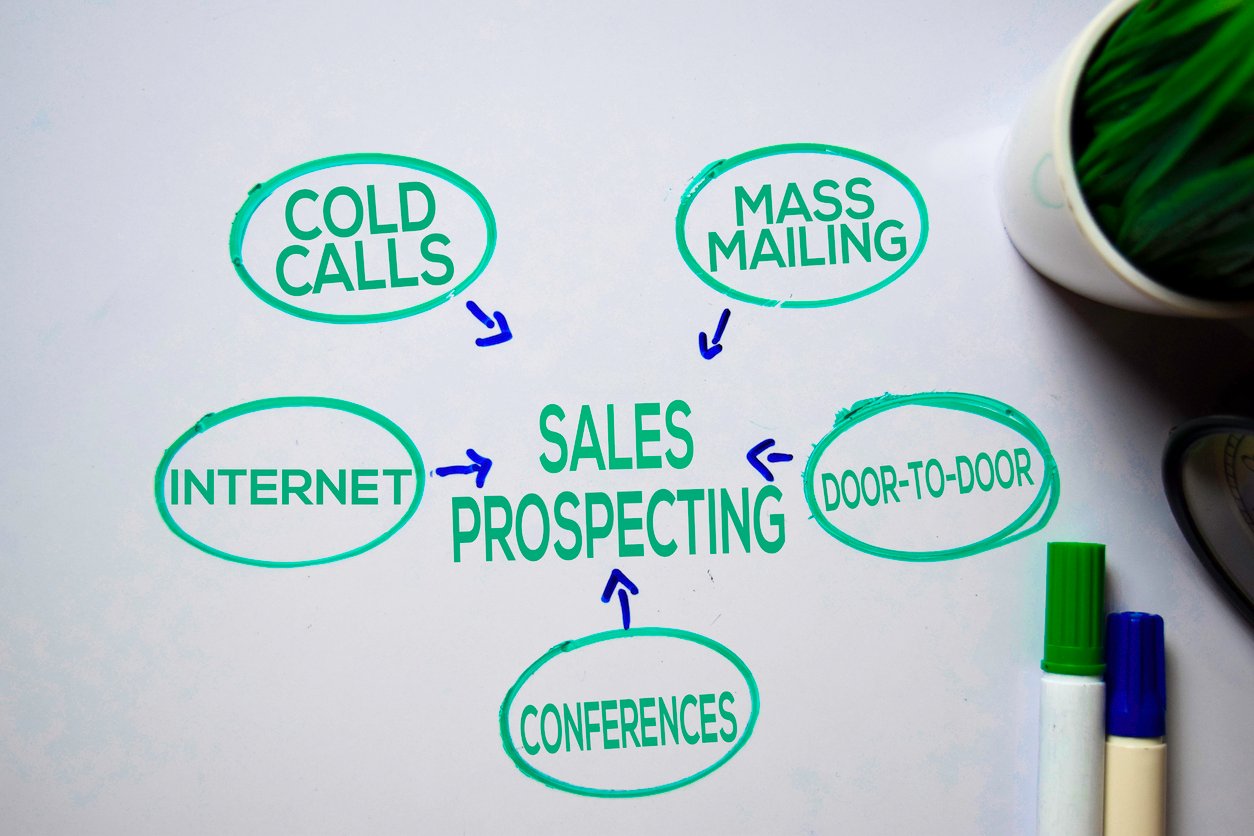
Ultimate Guide on Sales Automation [Definition, Top Software, FAQ]
 Updated on
Updated on
By Ringy
Table of Contents
Table of Contents
Did you know that salespeople only spend about 28% of their time actually selling?
Pretty surprising, right? Thankfully, there are tons of sales automation tools out there that promise to reduce the administrative burden on salespeople and get them doing more of what they do best: selling.
But maybe you're still on the fence about whether it's worth investing in automated sales tools. So let's back up to the beginning and go over sales automation and exactly what it means, and how it can help your sales team now and in the future.
What is Sales Automation?
Sales automation, also known as sales force automation or web-based sales force automation software, is when some aspects of the sales process can be done automatically without a salesperson having to intervene.
Aspects of your sales process, such as contact management, lead management, your sales pipeline, reporting, invoicing, after-sales support, and more, can all have automation built into their processes through sales automation tools.
Sales automation tools are often part of a CRM (Customer Relationship Management) system, which manages the automation and allows customizations and rules to be set. Sales tools don't always have to be part of your CRM, but having everything in one place tends to increase efficiency, so it's something to keep in mind.
How Does Sales Automation Work?

Sales automation can be simple, from using appointment booking software that syncs with your calendar to having specific lead source emails sent to certain salespeople. There's even software that can gather leads for you based on your industry, customer type, location, etc.
Typically, though, sales automation works in tandem with marketing automation and your CRM to simplify, streamline, and improve the sales process so that more leads can be qualified, more customers satisfied, and your salespeople electrified (in the metaphorical sense).
For example, a potential customer fills out a lead form on your website. Instead of a salesperson having to view and determine the priority level for that lead, sales automation software can do it for them by looking at factors such as industry, the information provided, occupation, etc.
Sales automation isn't meant to take away salespeople's jobs or minimize their efforts, rather it's meant to give them the freedom to focus on actually selling, rather than the administrative tasks that usually take up most of their time.
Here are some quick stats that highlight just how much of a difference sales automation can make:
- Sales automation frees up your sales reps and improves their selling time by 15-20%, giving them more time to close deals.
- 90% higher customer retention rates come from omnichannel marketing automation (providing a seamless customer experience across devices)
- Industry ARC projects a 5.5% growth over six years for sales process automation.
How Do Sales and Marketing Automation Work Together?
In a typical company where there's a sales and marketing team, the marketing team is responsible for doing campaigns, advertising, and more to generate leads to send to the sales team. When these two teams work closely together, they can better understand each other's roles and how they mesh together to get more sales.
Marketing and sales automation tools help both teams streamline processes, as well as identify opportunities and solve problems.
As an example, let's say a marketing team is doing a social media campaign across different social channels, like Facebook, Instagram, LinkedIn, and Pinterest. The leads generated from those campaigns get sent directly to the sales team. The sales team realizes that the best-converting leads tend to come from LinkedIn, so now the marketing team can focus more effort on LinkedIn campaigns than the other platforms, which would in theory generate even more leads.
8 Advantages of Sales Automation Software
Sales automation software provides tons of advantages that make the sales process easier and increase efficiency and productivity. Listed below are the main advantages of sales automation, with quick notes about which processes in each category can typically be automated.
1. Sales Strategy and Planning
Sales automation software simplifies forecasting with real-time data, enabling accurate predictions and resource allocation.
For instance, a retail business can automate demand forecasts based on historical sales data to adjust inventory levels efficiently. Performance tracking tools provide instant insights into team metrics, while 360-degree customer profiles help tailor interactions to improve the buyer's journey.
2. Marketing Automation
Automation streamlines lead nurturing by tracking touchpoints like form submissions or email clicks in real time. For example, a SaaS company can identify high-converting channels and automate follow-up emails to leads showing interest in specific features. Automated email and SMS campaigns keep customers engaged throughout their journey.
3. Contact Management
Accurate customer profiles are maintained with automated updates, reducing manual errors. A fitness app, for example, can update customer preferences based on their usage patterns to personalize offers. Automation also reduces churn by providing insights into buying behavior and preferences.
4. Lead and Pipeline Management
Lead qualification and prioritization are automated, ensuring faster processing. A B2B company can use criteria like industry and lead source to rank prospects, allowing reps to focus on high-value leads. Leads are automatically sorted and placed in the pipeline, streamlining follow-ups.
5. Order Management and Invoicing
Automated invoicing eliminates manual errors and ensures timely billing. For instance, a subscription service can auto-generate monthly invoices and activate customer accounts instantly upon payment. Order support is streamlined with automated email ticketing and live chat tools.
6. Scheduling
Automation makes scheduling effortless by syncing with calendars. Sales reps can book customer meetings directly through shared systems, reducing delays and improving customer interactions.
7. Reporting

Sales performance reports are auto-generated using real-time data, eliminating manual effort. For example, a CRM system can provide daily updates on pipeline metrics, helping teams adjust their strategies quickly.
8. After-Sales Support
Follow-ups are automated to maintain engagement. An e-commerce platform can send customers post-purchase emails with personalized product recommendations or delivery updates, enhancing satisfaction.
How to Choose Sales Automation Tools (5 Key Considerations)
Sales automation tools may be useful for all types of industries and businesses small or large, but choosing the right software can seem daunting when there are so many options available.
After looking at a bunch of different types of sales automation software, we've found five key considerations to keep in mind. Good sales automation software should have a good mix of features, integrations, usability, and reporting for a reasonable price.
|
Consideration |
Why It Matters |
|
Price |
The tool's cost should align with your budget while delivering value through essential features and scalability. |
|
Features |
Focus on tools with robust functionality that addresses your specific sales needs, such as lead management, email automation, or pipeline tracking. |
|
Integrations |
Ensure the tool integrates seamlessly with your existing tech stack, such as your CRM or marketing platforms, to avoid data silos and maximize operational efficiency. |
|
Usability |
Choose software with an intuitive interface and easy onboarding to ensure your team can adopt it quickly and effectively without extensive training. |
|
Reporting |
Strong reporting capabilities are vital for tracking performance and making data-driven decisions. Look for tools that offer customizable, real-time analytics. |
You may want to put more criteria on this list that meets your unique business needs before making your final decision, but at the very least, these considerations will steer you in the right direction.
Our Top 6 Picks for Sales Automation Solutions

Sales automation solutions come in all different forms, so our top 5 sales automation picks span ones that are built into or integrate with CRMs to ones that work as stand-alone applications.
Each sales automation software is summarized below, and there's also a comparison table so you can get an overview of each software's features.
*All Pricing Details Accurate as of November 2024*
1. Ringy

Ringy is great if you make a lot of sales calls and texts, but also want a fully-featured CRM to manage leads, create a sales pipeline, and get full reports and analytics. It's one of the only CRMs on this list to offer all features in one subscription package. Full support from Ringy is included in the subscription.
Ringy integrates with Facebook, Google, and Zapier at no additional cost.
Although most Ringy customers are from the insurance industry, the software provides a lot of opportunities for salespeople from all kinds of industries to become more productive and efficient.
2. Hubspot Sales

As you probably already know, Hubspot is a popular CRM automation platform with tons of functionality. While you can get everything all together in one package, Hubspot also offers its sales hub as a separate piece of standalone software. If you want to integrate it into other Hubspot products at a later time, you can do that as well. Hubspot also has a mobile application so that you can stay connected on the go.
Hubspot's sales hub acts as a powerful sales CRM, complete with sales engagement tools, quote functionality, reports, and analytics. You can also integrate it with tons of different apps, like Slack and Trello, and more, using the Hubspot app marketplace. The main features of Hubspot sales are analytics and reporting, workflow management (from deals to lead rotation), and sales forecasting.
Hubspot sales pricing ranges from $15 per seat per month all the way up to $150 per seat per month when billed annually, depending on the list of features you need and the number of users you require.
*Pricing as of November 2024
3. Overloop (formerly Prospect.io)

Overloop (formerly Prospect.io) is a complete sales automation platform that helps you start more conversations and close more deals. It includes all of the features you would expect from a sales automation engine, from contact management to reporting and forecasting. Overloop also includes a mobile application so you can keep track of sales figures on the go.
If you already have a CRM automation in place, Overloop integrates with popular CRMs like Hubspot, Pipedrive, and Zoho, and if you don't have those, Prospect.io provides an API so you can integrate the software into your own system. Overloop also integrates with Zapier to provide additional app functionality.
Overloop's pricing is not publicly available. To start using the platform, you must specify your requirements and request pricing information based on those needs.
4. LeadFuze

Leadfuze is a search engine for leads that caters to sales, marketing, and recruiting teams. It uses AI to verify contact and company information like social profiles, email addresses, phone numbers, and more.
Leadfuze includes a bot that sorts and builds lead lists for you and filters out duplicate information when you integrate the tool with your existing workflow management system or CRM. Leadfuze integrates with many popular tools and CRMs, such as Salesforce, Hubspot, and Pipedrive, as well as Zapier, to allow you to add more tools as needed.
Leadfuze's pricing is based on "lead credits," which is just the number of leads that it will pull for you in a month's time. There's a free trial, and then the Scaling package includes 500 leads for $147 per month. If 500 leads aren't nearly enough, the next tier jumps to Unlimited leads for $397 per month. Both tiers also allow you to add more leads to the existing plan without upgrading to the next tier if you need to. If you don't use all the lead credits included in a month, those credits can roll over to the next month.
*Pricing as of November 2024
5. GrowthGenius

GrowthGenius is a sales automation tool that combines a huge database of potential leads with lead generation tools like email to simplify the prospecting process.
GrowthGenius starts with getting to know your business and conducting an in-depth analysis of your customers. Then, they create a prospecting plan and pull a list of leads for your business within their huge database.
With their Professional plan at $99 per user per month, you'll get access to copywriting and other service offerings. Otherwise, the base plan, along with the other plans, includes email, live chat, and phone support, respectively.
*Pricing as of November 2024.
6. DocuSign

DocuSign is a bit different from the other sales automation tools on this list, but we wanted to highlight it because it's an example of a good tool that integrates with your CRM of choice with its signature API.
DocuSign is a more specific sales automation tool that helps you streamline contract and agreement signing. DocuSign has reliable security features and is built from the ground up to be integrated into your application or website, so theoretically, it should work with any CRM as well. DocuSign's plans are separated into their eSignature plans (which allow you to use DocuSign as a standalone tool), real estate-focused plans, and API plans for integrating DocuSign into your website, app, or CRM.
|
Sales Automation Software |
Top Features |
|
Ringy |
|
|
Hubspot Sales |
|
|
Overloop |
|
|
LeadFuze |
|
|
GrowthGenius |
|
|
DocuSign |
|
Overcoming Challenges in Sales Automation
While sales automation offers numerous benefits, it also presents challenges that need careful management to ensure success. Here's how to overcome the most common hurdles.
1. Maintaining Personalization
To balance automation with personal engagement, use automation for repetitive tasks like follow-ups, while ensuring key moments in the customer journey, like sales calls, retain a personal touch.
For example, automated emails can be personalized with customer data to maintain relevance without losing the human connection.
2. Avoiding Over-Automation
Over-automation can lead to a robotic experience. To enhance rather than detract from the customer experience, ensure automation supports personalized interactions, like using automated sales systems to gather data that informs human outreach. The goal is to create a smooth, efficient process without sacrificing genuine connections.
3. Ensuring Data Accuracy
Keeping CRM and sales automation data accurate and up-to-date is critical. Regularly clean your database to avoid duplicates and outdated information, ensuring that automated sales and marketing efforts are based on reliable data, which drives better decision-making and customer engagement.
4. Training and Adoption
Training your team to use sales automation tools effectively is key for successful adoption. Provide regular training sessions and hands-on practice to ensure that team members fully understand how to leverage sales automation software to boost productivity and improve performance.
5. Aligning Sales and Marketing
Collaboration between sales and marketing teams ensures a unified strategy and a seamless customer journey. Sales automation tools can be used to track lead behavior, while marketing automation helps nurture those leads, ensuring they are ready for a smooth transition to the sales team when they are most likely to convert.
Summary
Sales automation software is meant to streamline the sales process by automating some of the administrative tasks that take up salespeople's time away from selling. There are a lot of different types of sales automation tools, most of which are focused on lead generation and management. Good sales software should have a good mix of features, integrations, and usability for a reasonable price.
If you're ready to try sales automation software for your business, head on over to our demo page and get a full overview of Ringy's sales automation system.

Skyrocket your sales with the CRM that does it all.
Calling? Check. SMS? Check. Automation and AI? Check. Effortlessly keep in touch with your customers and boost your revenue without limits.

Take your sales to new heights with Ringy.
Sales in a slump? Ringy gives you the tools and flexibility you need to capture leads, engage with them, and turn them into customers.
Subscribe to Our Blog
Enter your email to get the latest updates sent straight to your inbox!
Categories
Related Articles



























































































